Want to be seen here?
Connect your company to the marketplace for free.
Time for a display campaign? Ocast has gathered thousands of solutions in one place so you can get started quickly. Fill in the form and start receiving offers for campaign proposals.

The Sun is a British tabloid newspaper, published by the News Group Newspapers division of News UK. It was founded as a broadsheet in 1964 as a successor to the Daily Herald, and became a tabloid in 1...

The Times is a British daily national newspaper based in London. It began in 1785 under the title The Daily Universal Register, adopting its current name on 1 January 1788. The Times and its sister pa...

The Sunday Times was founded in 1822 and has a history of innovation stretching from a female proprietor in 1887 and a female editor in 1894, through to pioneering book serialisations and the first co...
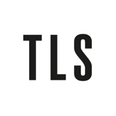
The TLS is a world leading journal for literature and ideas. Founded in 1902, it publishes book reviews, poetry and prose by writers from around the world, essays on everything from philosophy to poli...
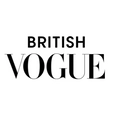
Vogue is the fashion bible. Since the launch of the British edition in 1916, Vogue has been the pre-eminent fashion magazine. Today, Vogue continues to define fashion on multiple platforms, in print a...
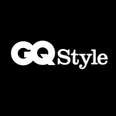
Launched in 2005, GQ Style is the most dynamic, diverse and cutting-edge men's fashion magazine in the UK. Published biannually, GQ Style covers every trend in the market and its influence is far-reac...
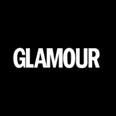
GLAMOUR is the online and print destination for millennial and Gen Z beauty-loving women. Since its launch in 2001, it has transformed from a print magazine to a truly 360 digital-first brand that pro...

Condé Nast Traveller, launched in 1997, has been at the vanguard of a new age of exploration and luxury travel. Today, Condé Nast Traveller's influence extends to multiple platforms including the webs...

Vanity Fair is the biography of our age. With a unique mix of glamour and grit, Vanity Fair opens the doors to Hollywood, high finance, media, politics and culture, tracking the latest scandals, the g...
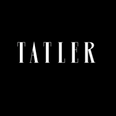
Tatler was first published in 1709. Today, more than 300 years later, Tatler magazine is published both in print and digitally, with a dynamic website focusing on parties and people, a dedicated soci...

House & Garden launched in 1947 and showcases the best in international design and decoration from around the world. House & Garden is one of Britain’s definitive sources of home inspiration and toda...

The World of Interiors inspires devotion in those who have a passion for design. Authoritative, relevant and lavish, The World of Interiors is one of the foremost design and decoration titles in the w...
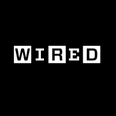
Wired explores the ideas and innovations that are reshaping our world and is targeted at an intellectually curious, smart urban elite. Launched in the UK in 2009, Wired has since won numerous awards. ...
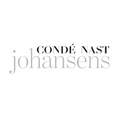
Condé Nast Johansens is the principal reference guide for independent travellers.Condé Nast Johansens is a global collection of independent luxury hotels, spas and venues approved annually by Local Ex...
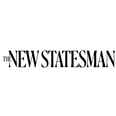
The New Statesman is the leading progressive political and cultural magazine in the United Kingdom. Founded as a weekly review of politics and literature on 12 April 1913, the New Statesman has notabl...
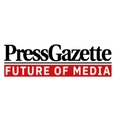
Press Gazette started in 1965 as a trade journal for journalists and editors across the UK but has evolved into an online source for media leaders covering all sectors of the global news and media ind...
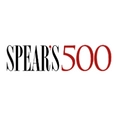
Spear’s 500 is the indispensable guide to top private client advisers, wealth managers, property advisers, lawyers and service providers to high-net-worth individuals....
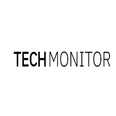
Tech Monitor, through its data-driven journalism, research, and events, is an essential source of insight and analysis for technology leaders in business and the public sector....
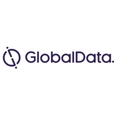
GlobalData is the gold standard data provider to the world’s largest industries, continuously collecting and analysing terabytes of data to form comprehensive and authoritative intelligence....
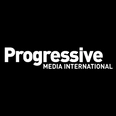
PMI is an established B2B media company with over 70 years of experience delivering market-leading publications, events and content across a wide range of industry sectors....
Display advertising, often referred to as banner advertising, involves visual ads placed on various websites, in contrast to text-based search ads that appear in search results on platforms like Google.
While search ads are focused on direct response, display ads aim at building brand awareness through engaging visual content like images or animations. Display advertising also enables retargeting, where ads are redirected to users who have previously visited your website, helping to keep the brand fresh in mind.
With opportunities to measure campaign performance and customize design and target audience, display advertising offers an attractive strategy for brands looking to enhance their online presence and effectively engage their target audiences.
The most effective formats and sizes for display ads vary depending on the platform and target audience, but here are some popular options:
Leaderboard (728x90 px): Positioned at the top of the page, this ad size captures visitors' attention right away.
Medium Rectangle (300x250 px): This size is flexible and can be placed in sidebars or embedded within content.
Large Rectangle (336x280 px): A larger variant of the Medium Rectangle that offers more visible space.
Wide Skyscraper (160x600 px): Often used in sidebars, offering a long, vertical ad space.
Mobile Leaderboard (320x50 px): Optimized for mobile devices and often placed at the top or bottom of the screen.
Consider adhering to industry standards and adapting ad format and size to the specific platform and your target audience. However, the emphasis should be on having well-thought-out content that engages and is relevant to your target audience with clear "Call to Actions" (CTA) to encourage clicks and conversions.
Measuring the effectiveness of your display advertising campaigns is crucial for evaluating the results of your campaign and for fine-tuning future marketing strategies. A first step could be to look over the Click-Through Rate (CTR), which represents the number of clicks your ad receives per view, providing an indication of the ad's engagement level. It is also important to track the conversion rate, which shows how many clicks are converted into desired actions such as sales or leads. Cost Per Conversion is another key indicator that helps you understand the cost-effectiveness of your campaign.
It may also be good to look at the impression rate, that is, how many times the ad has actually reached out and been displayed for brand-building purposes.
One of the major advantages of this type of advertising is its ability for audience targeting, where ads can be directed based on demographics, behavior, and retargeting, enabling a more personalized advertising experience. Moreover, with the use of various analytical tools, it becomes easy to track and measure the campaign's effectiveness by observing data on clicks, conversions, and views, which provides valuable insights.
However, display advertising also has its downsides. Ad blocking is one of the major challenges, where users can choose to block display ads, which in turn reduces the reach and effectiveness of your campaign. Ad fatigue is another downside, where ads that are shown too often can become irritating for the users, leading to decreased engagement and negative brand associations. Despite the ability for audience targeting, audience dilution can be a challenge if precise targeting is not used, which potentially leads to wasted marketing expenses. Additionally, the cost of display advertising can become significant, especially if the campaign is not well optimized to achieve desired results.
The cost of display advertising can vary based on several factors such as website, ad format, and target audience. Besides that, there are different pricing structures one can base on to adjust the cost according to the goal at hand. Below we list different pricing options for display advertising.
CPM (Cost Per Mille or Cost Per Thousand Impressions):
The price for 1000 views of your ad.
Often used for campaigns aimed at increasing brand awareness.
CPC (Cost Per Click):
The price you pay for each click your ad receives.
Used when the goal is to drive traffic to a website or increase interaction.
CPA (Cost Per Acquisition or Cost Per Action):
The price for each specific action or execution, such as a purchase or lead generation, that arises via your ad.
Used when the goal is conversions rather than just views or clicks.
CPL (Cost Per Lead):
The price for each lead generated through your ad.
Used in B2B marketing or for products/services with longer sales cycles.
CPV (Cost Per View):
The price for each viewing of a video ad.
Often used for video-based advertising campaigns.
Each pricing structure suits different goals and campaign types, and choosing the right pricing structure can help maximize the ROI for your display campaign.
Connect your company to the marketplace for free.
No commitments.